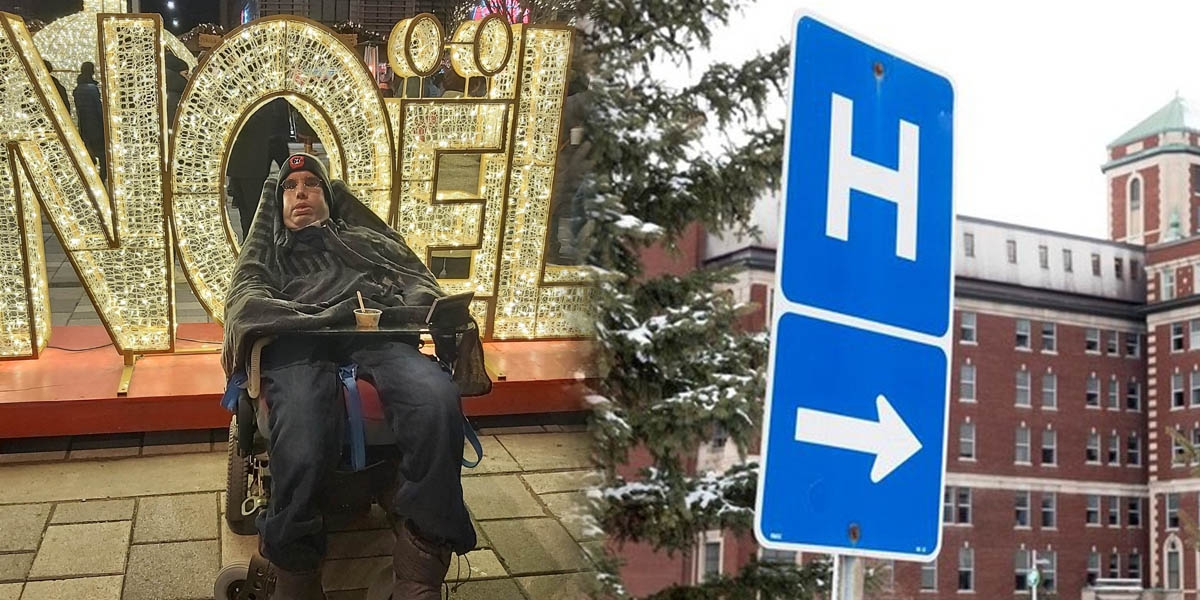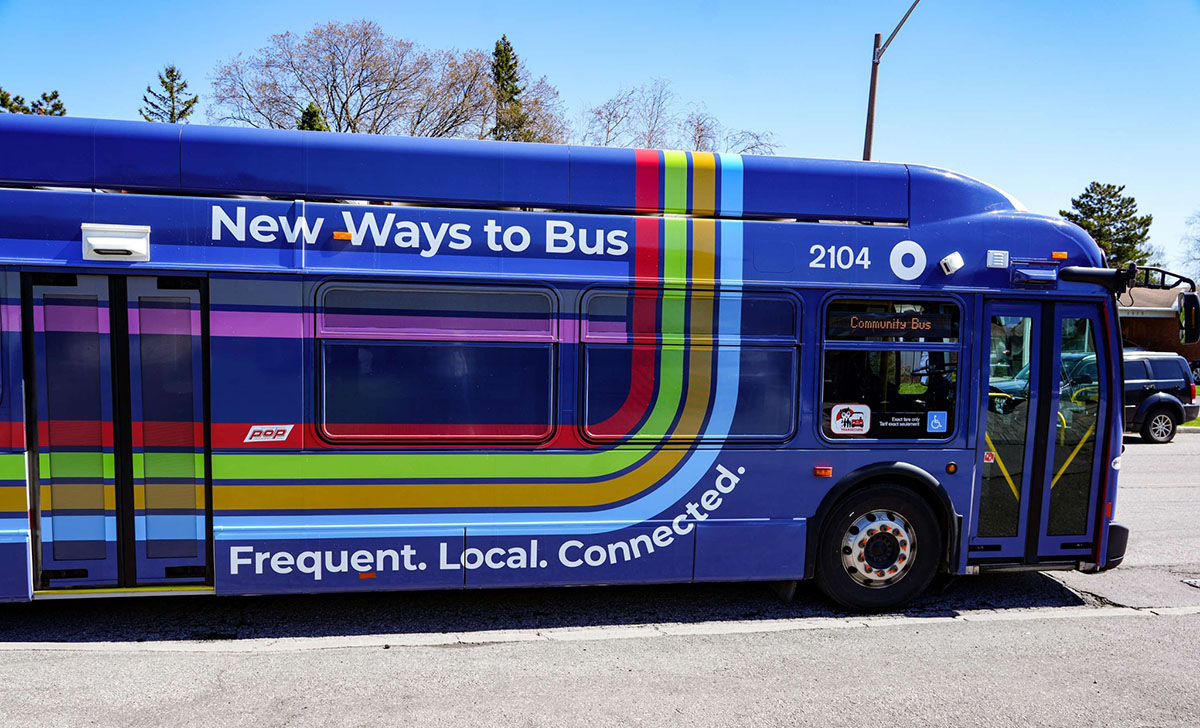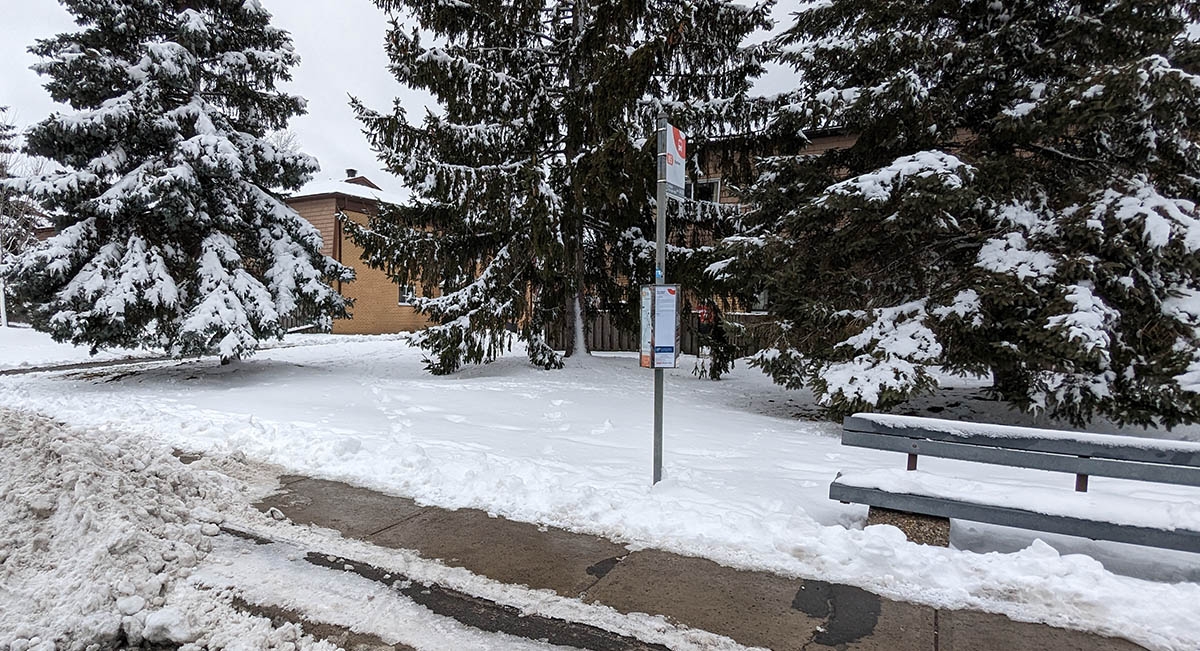
People with disabilities deserve better care from hospitals.
ABOVE: Contributor Ryan Lythall shares his experience being hospitalized over the holidays.
Welcome to 2023!
I hope you all enjoyed the holiday season.
As some of you may have noticed, I was away last week. Initially, I wanted to relax over the holidays and all that.
Unfortunately, plans changed.
I spent most of Christmas Day and Boxing Day in the hospital.
Shortly after I opened my presents with a friend, I started having shortness of breath and tightness in my chest. I knew that I needed to get to the ER.
But how?
Realistically, I had three options.
1. Para Transpo
2. Wheelchair Accessible Taxi
3. Ambulance
Let’s break it down.
Para Transpo
On a good day, it’s doubtful I’d get a same-day booking. Since it was Christmas Day, I figured my chances would be lower. Even if successful, I’d be waiting at least thirty or sixty minutes. There could be other passengers on board, and some Para Transpo drivers can be hard to deal with, even when I’m not sick.
Wheelchair Accessible Taxi
This made the most sense to me, and everything went smoothly. I called Blue Line, and a van showed up about twenty minutes later. I rolled into the back of the van, the driver tied down my wheelchair, and off we went. Once we arrived, I paid the fare and headed inside the hospital.
Ambulance
No, just no. If it were an emergency, I’d have no choice. Thankfully, in this situation, I felt that I had at least a bit of time.
Here’s the thing about taking an ambulance, you can’t take your mobility device. There’s simply no room and no ramp to get it on board. In other words, I’d be stuck on a gurney and possibly a bed for my entire hospital stay. Also, trying to arrange a ride home without having my wheelchair can be an absolute nightmare, which I try to avoid when possible.
As I’ve mentioned in previous articles, if you’re a person with a disability and you end up needing to go to the hospital, you’ll quickly find out that our healthcare system doesn’t consider us.
Also, keep in mind, as part of my physical disability, I’m ventilator dependent, which also doesn’t help. There aren’t many people who rely on a ventilator 24/7, living in Ottawa.
On countless occasions, I regularly encounter nurses and doctors who have no idea what to do with me and how to treat me.
It can often be very frustrating and traumatic.
As far as my recent hospital stay, I didn’t need to wait very long for an incident to occur.
Right after I arrived, I signed in and saw the triage nurse about fifteen minutes later.
I was then escorted to a room in the ER.
I need to point out that I feel like an alien whenever I go to the ER. Not just because I’m being poked and prodded. For some reason, almost every person feels the need to pop their heads in or just stand and stare from just beyond the curtain.
I don’t understand why it happens, but it adds to my anxiety.
At this point, I’m still in my wheelchair and safely on my ventilator. The nurse wants me to get transferred to the bed. Due to my disability and chronic body pain, much care and attention must be taken.
For example, one person needs to make sure that my ventilator tubing stays connected to me. At the same time, someone else needs to watch that my neck is well supported. When I’m at home, it’s no big deal, but all that goes out the window when I’m in the ER.
Shortly before I was transferred, two respiratory techs (RT) had been setting up one of their hospital ventilators for me to use. Once I was hooked up to their ventilator, I wasn’t getting any air.
Instead of noticing me as I tried to get their attention, both RTs figured it made more sense to fiddle with the machine.
Thankfully, one of my PSW offered to be with me while I was there. She quickly noticed that I wasn’t getting any air. I was then hooked back up to my ventilator, freaked out, but breathing.
A few hours later, I got a room in the ICU.
For the most part, things went smoother for me during my time in the ICU. The staff paid close attention to me and largely respected my wishes and PSW on my behalf.
It’s important to note, though; things could’ve been much worse if one of my PSW hadn’t offered to stay.
This begs the question, what can hospitals do to put people with disabilities at ease?
There are two simple answers, at least as far as my recent experience goes.
1. ALWAYS listen to the patient.
If they’re non-verbal, have communication challenges, or are suddenly unable to communicate, establish a backup method ASAP, or learn whatever tools/techniques the person uses to communicate. You never want to be in a situation where something goes wrong, and the patient’s being ignored.
Also, there’s a good chance that a PWD can explain how their disability affects them and what works best.
2. When possible, allow us to use our assistive device(s).
Regardless of the assistive device(s) we use, they’re set up and programmed specifically for our bodies and specific medical needs. When a PWD goes to the hospital, we don’t need the added stress of wondering if the machine(s) from the hospital will work properly. We already have enough to deal with.
Now, every situation’s different, and every person’s different. The important thing to remember is that communication at all times is extremely important.
Besides safety reasons, it reassures us that you see us, and we can establish a certain level of trust that will put us both at ease. The sooner we’re at ease, the sooner we’ll recover, and the sooner we can go home.









